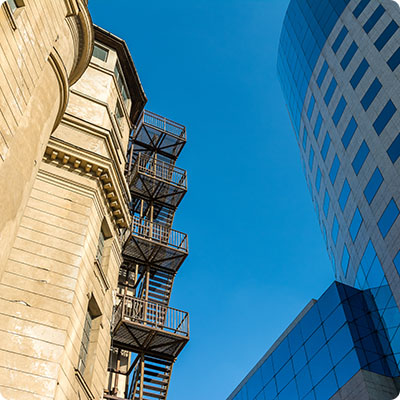Difficult years
The Paraguayan people were born out of a meeting on the left bank of the Río Paraguay between Juan Díaz de Solís and his men and the Guaraní tribes who lived in the region. A few years later, the conquistadors established the fort of Nuestra Señora de la Asunción. Unfortunately, the plundering of resources and the furious proselytizing of that time was not very favourable to the indigenous people. However, thanks to the Jesuits who formed reducciones (reductions), independent communities where the Indians lived, the Indians were able to maintain their cultural identity. Antonio Ruiz de Montoya, a Peruvian priest, fought for their protection. This distinguished linguist studied their language fervently and wrote various manuals for the missionaries. These will be the first traces of "literature" in Paraguay.
History was already bubbling with activity, with many twists and turns, and it was not until two centuries later, in 1811, that Paraguay gained its independence. It was said, however, that independence would not go hand in hand with intellectual fulfilment. José Gaspar Rodríguez de Francia was installed as dictator for life and until his death in 1840, censorship was the order of the day and the country lived in virtual autarky. His successors, his nephew and then his son, Francisco Solano López from 1862 onwards, seemed to ease the pressure a little. Thus, in 1860, Natalicio de María Talavera founded the magazine La Aurora with other students, but this brief flight was interrupted by the war of the Triple Alliance that broke out in 1865. Incorporated as a lieutenant, the young poet became a correspondent and sent his columns to the Telégrafo Nacional. There, he also launched a satirical newspaper, Cabichu'i, to alleviate some of the soldiers' anguish. He was mowed down by illness in 1867, when he was not yet 30 years old. The conflict, which ended three years later, left the country bloodless, with two-thirds of the population decimated. It is meticulously told by Juan Crisóstomo Centurión in his Memorias o reminiscencias históricas sobre la Guerra del Paraguay, a first text that will be irremediably followed by a multitude of others, the story never ceasing to inspire the letters.
A Promising Century
The beginning of the 20th century saw the emergence of the writings of the "Generación del 900", including three authors who had the particularity of not being Paraguayan. Thus Rafael Barrett (1876-1910) was born Spanish into a wealthy family. He was endowed with a strong temperament, and his excesses led him to leave everything to cross the Atlantic. The shock is such that this proud dandy becomes an anarchist, convinced and militant. As much as his writings, it is his influence on the future writers of Paraguay that Augusto Roa Bastos saluted. A journalist too, and Argentinian by birth, José Rodríguez Alcalá also exerted a strong influence on the intellectual milieu of the time, his Ignacia: la hija de suburbio (1905) is considered one of the first Paraguayan novels. It tells the story of a young woman forced into prostitution, and in its present form constitutes a real social criticism. In the same year, his compatriot, Martín de Goycoechea Menéndez, published Guaraníes, Cuentos de los héroes y de las selvas with nationalist overtones.
In the 1920s the melodious voice of the modernist poet Manuel Ortiz Guerrero began to be heard. Writing indiscriminately in Spanish and Guarani, living on fresh water and the love of his companion, Guillermo Molinas Rolón, at a time when there were almost no real publishers, he nevertheless knew how to touch his fellow countrymen through his poetry - Loca is the best known of them - and his plays. Contaminated by leprosy as a teenager, it is hidden in the darkness that he receives his visitors at the end of his short life, which ends in 1933, in his Brazilian exile, while Paraguay sinks once again into war, that of the Chaco which opposes him to Bolivia. But Manuel Ortiz Guerrero had had time to encourage Julio Correa Myzkowsky (1890-1953) to write, and the latter took up the torch of a Guaraní dramaturgy of which he became the spearhead, whether as author, actor or director. His poetry is not to be outdone, and in this great current of modernity that he inaugurates, he does not hesitate to unite social criticism and devastating humour.
We are at the dawn of the emblematic "Generación del 40" to which Josefina Plá is closely linked. Although she was born in the Canary Islands, she was distinguished many times by her adopted country, which she discovered in 1927 and to which she devoted herself entirely until her death in 1999. Her abundant output - more than 50 books - includes The Dreams Prize, published in 1934, which caused such a stir that her poetry was unlike any other, as well as her tales, such as Hand in the Earth (1963). A complete artist, she tries her hand at all styles with the same determination and remains an important feminist voice, which unfortunately does not find an echo in French translations. At her side, in this literary circle known as Vy'a raity, Hérib Campos Cervera, highly politicized, had to submit several times to exile, more extensively in 1947 during the civil war. Close to postmodernism, he had started his career in magazines such as Juventud and Ideal. The only collection published during his lifetime was Ceniza redimida, Hombre secreto was published posthumously. Elvio Romero, the youngest member of the Generación del 40, who was only 21 years old in 1947, was also a committed communist activist and was destined for a life far from his country. His poetry, to which he has devoted himself passionately since his early youth, is profoundly humanistic and will be applauded by the greatest, from Pablo Neruda to José Saramago. When he was finally able to return to his native land, after the end of the Stroessner dictatorship, he was awarded the National Literature Prize.
In the footsteps of the poetic art that does not hesitate to assert itself, the novel takes a new turn. Offering until now a traditional, even fantasized, vision of the country and its turpitudes, the novel becomes radical. As proof, La Babosa (The Slug) by Gabriel Casaccia (1907-1980), published in 1952 and translated a few years later by Gallimard. The lucidity with which the author depicts the failings of the politicians of Asunción is imbued with tenderness when he evokes the resigned peasants and the prevailing poverty. Having tried naturalism(The Scream, 1938) and the absurd(The Well, 1947), he continued to fervently explore the realist vein when, in 1965, he wrote Los Exiliados, a dark portrait of Paraguayan emigrants in Argentina, where he himself would end his life in 1980.
Lapidary, Yo el Supremo by the unavoidable Augusto Roa Bastos, republished in French in February 2020 by Ypsilon Editions under the title Moi, le Suprême, is just as lapidary. The writer does not hesitate to slip into the shoes of the founding father, and no less a dictator, Francia, a novel that is finally giving him his letters of nobility. Born of a working class father and not even having had the time to finish his studies - he became a nurse during the Chaco war long before he was 18 -, it was in journalism that he took his first steps. Exiled in Buenos Aires, he published his first major work there in 1960, Hijo de hombre (Son of Man), a collection of tales in which his favourite themes were already taking shape: interbreeding, bilingualism, history and the struggle against dictatorship. His fame quickly spread beyond the borders. Although he had to leave again, Argentina in its turn experienced upheavals and it was in Toulouse that he packed his bags and became a professor of literature and Guarani at the university. He continues to write, Veille de l'Amiral in 1992, and Le Procureur in 1993. Honored with the prestigious Cervantes Prize in 1989, this year also rings with his return to Paraguay. His funeral, in 2005, is the subject of a three-day national mourning. Rubén Bareiro Saguier (1930-2014), a man who practised a thousand professions, from storyteller to lawyer, literary critic to poet, also lived in France, the country of his exile, where he was Paraguay's ambassador a few years later. Patiño still publishes his collection Poésie guarani, which can be discovered in trilingual version. Finally, let us conclude this brief overview of Paraguayan literature with a note of hope, and salute the work of the independent publisher La Dernière Goutte, which has published two works by Esteban Bodoya, born in Asunción in 1958, one of which, La Fosse aux ours, promises many delights, preferably pagan.
















